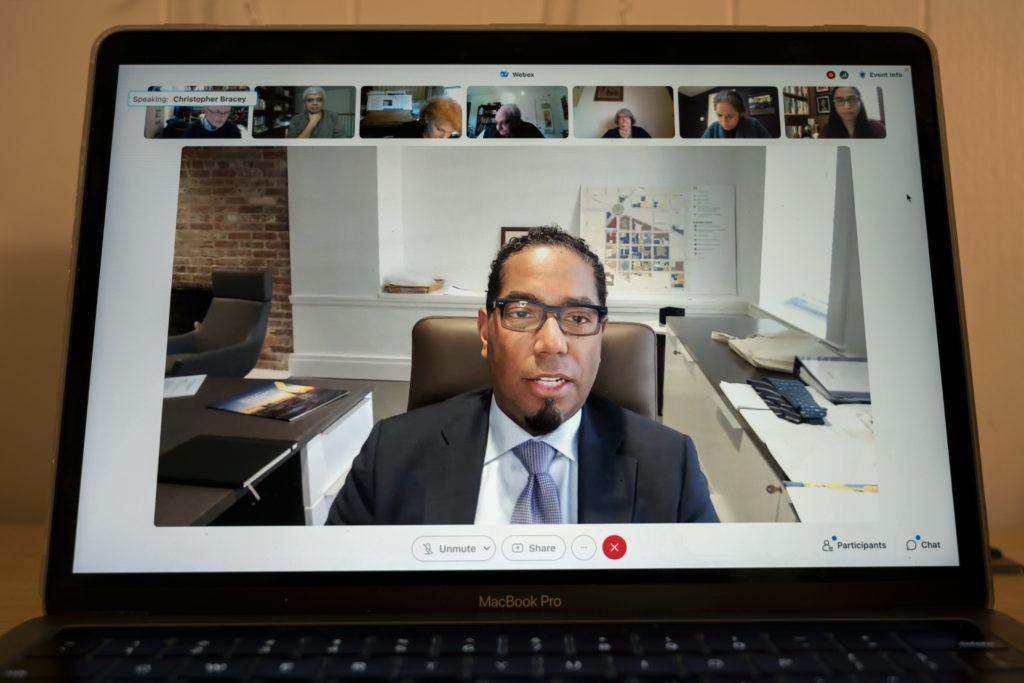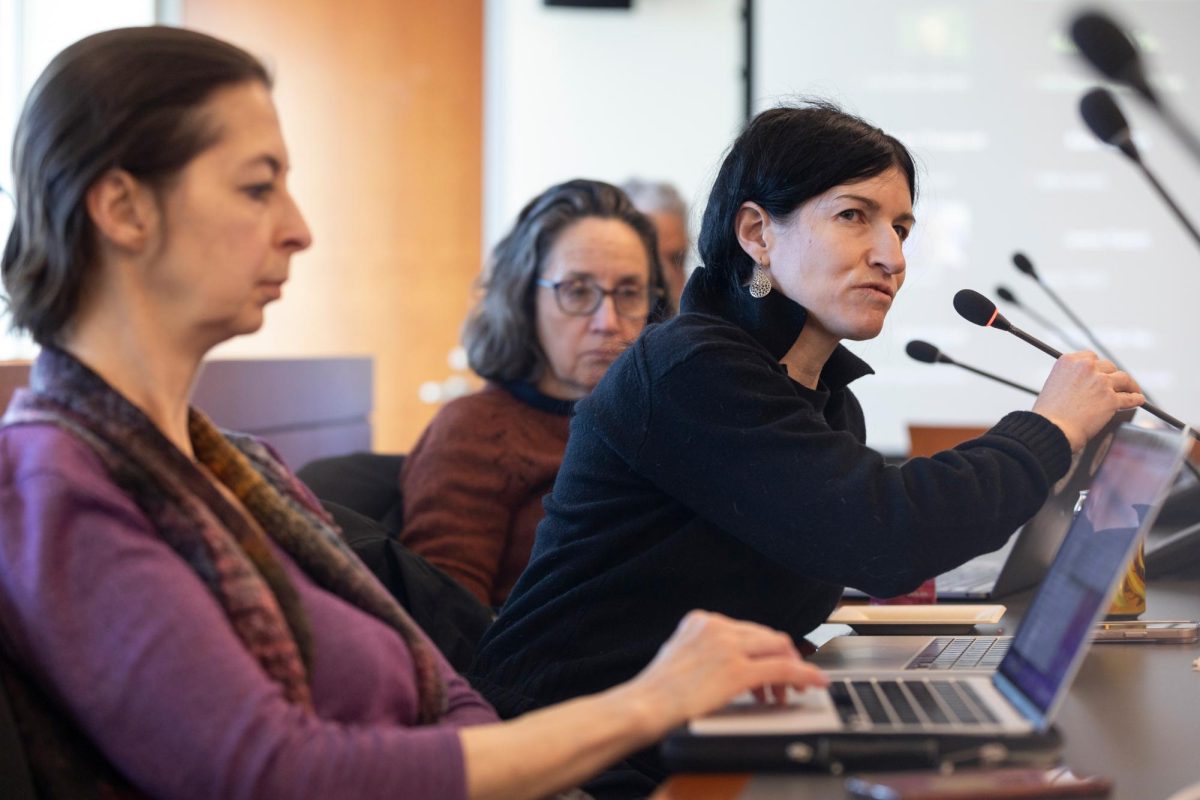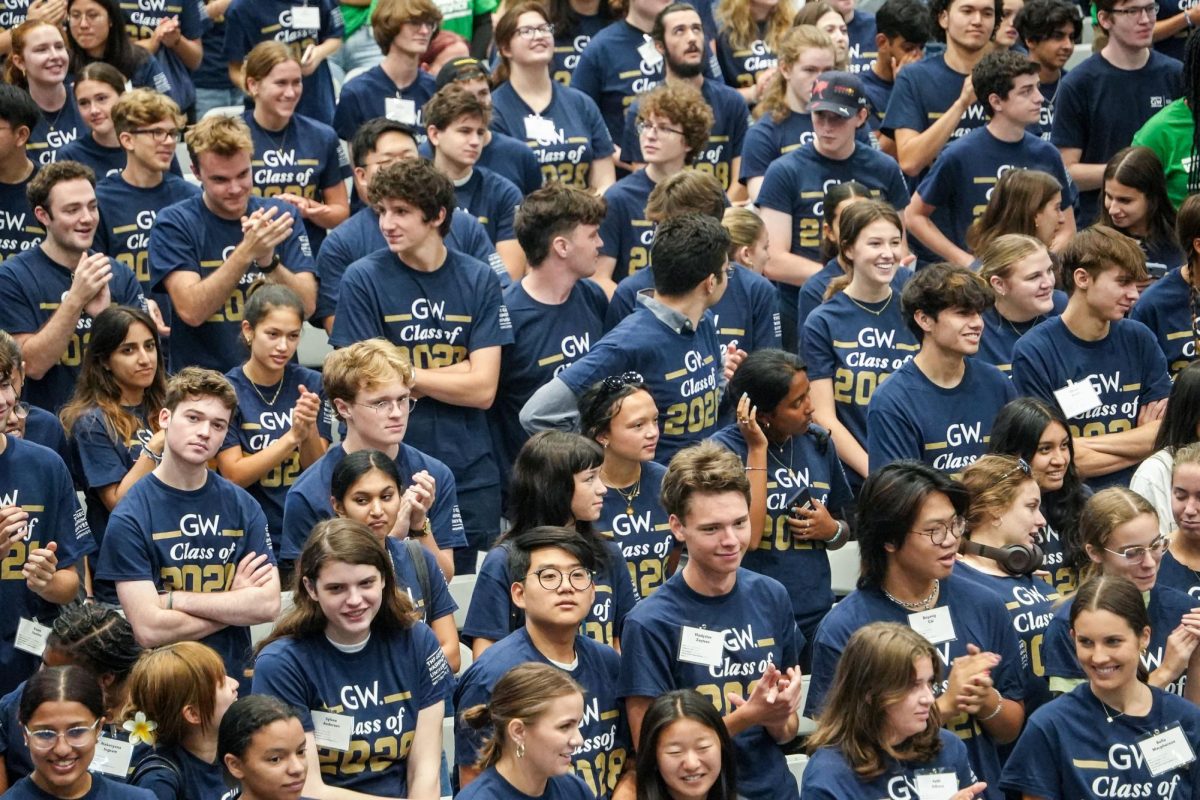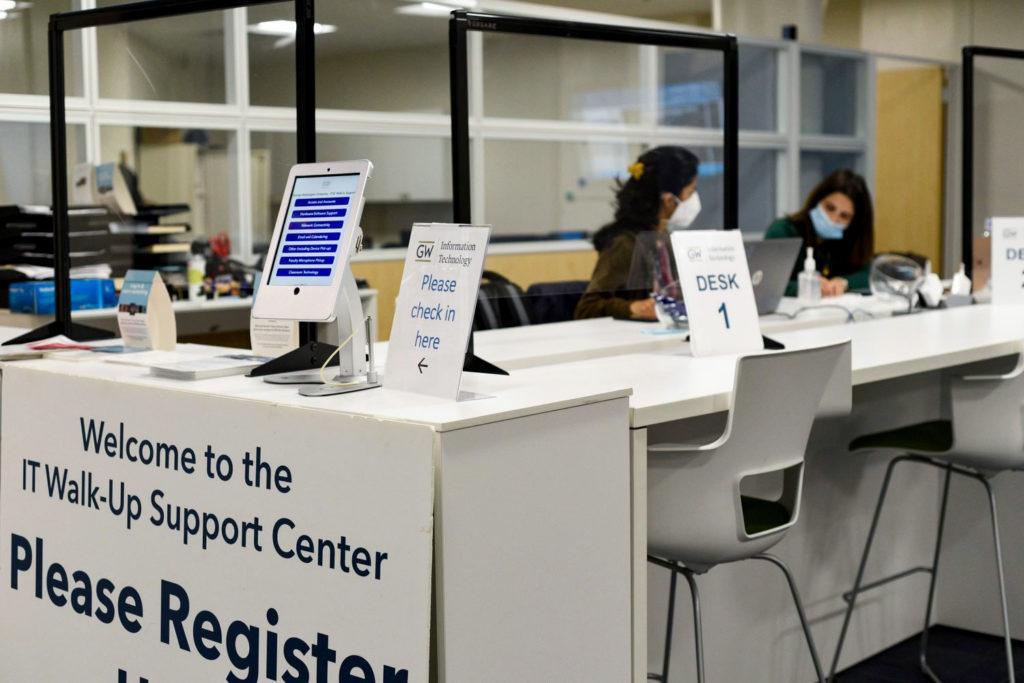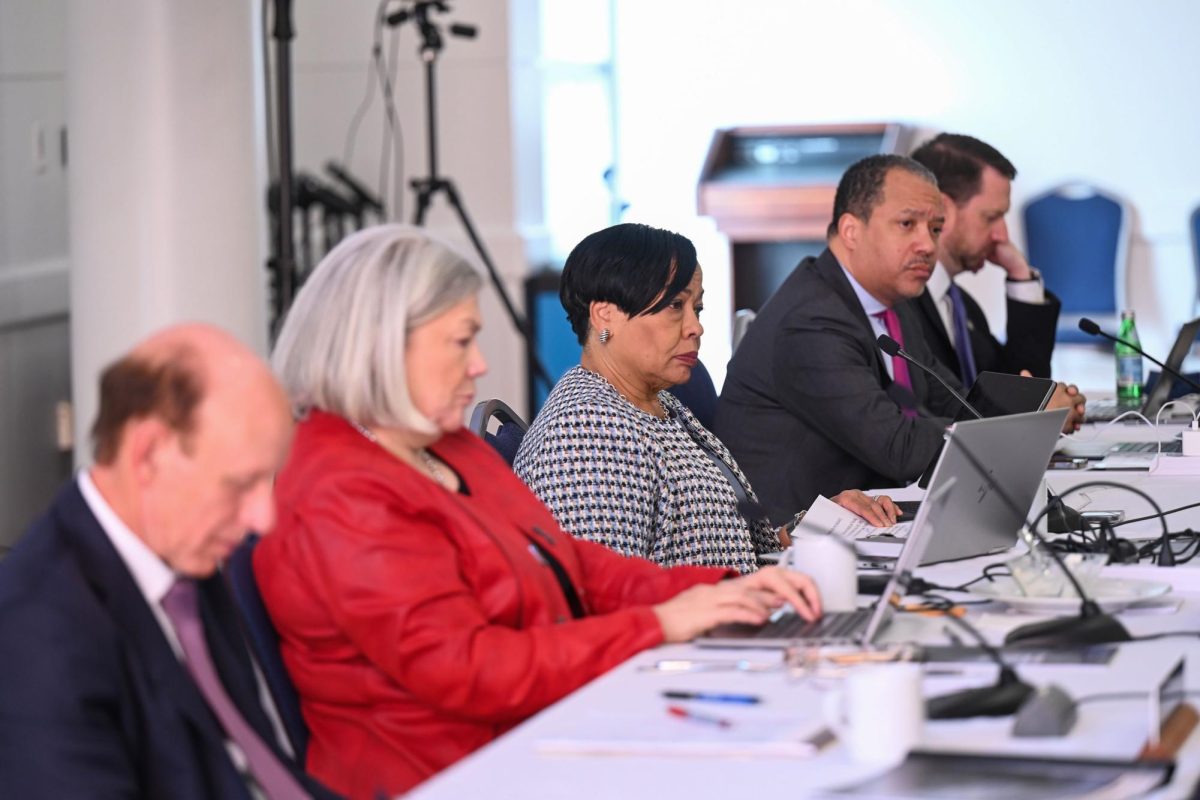Officials reviewed the results of a survey where faculty, administrators and Board of Trustees members delivered feedback on how to improve shared governance during a Faculty Senate meeting Friday.
Provost Chris Bracey said the feedback outlines three themes to guide reforms to shared governance – the need for timely and transparent communication between officials and bodies like the Faculty Senate, clarity on University operations and a better culture of collaboration among faculty, administrators and trustees. Bracey said GW’s 12-member shared governance task force, which developed the survey, will continue meeting this month to make recommendations to the Board by April 15 on how to improve shared governance based on the feedback.
Officials announced the creation of a task force on shared governance earlier this academic year after professors cited a lack of trust and collaboration between faculty and trustees in a survey during the previous academic year. The task force conducted a series of town halls in January to solicit input from faculty, and the team released a survey for faculty, administrators and trustees to comment on shared governance in February.
“The virtual town halls, the survey in the robust discussion at the virtual retreat, have demonstrated that the community is eager to work together to strive and arrive at a consensus around the meaning and expectations of shared governance so that the University can continue to strive for excellence,” Bracey said.
Bracey said the shared governance task force will review “key governance documents” and “communications recommendations” like the results of the survey and the Faculty Code before it delivers its final recommendations to the Board. He said members of the task force have met with officials like Cheryl Beale, the senior associate provost for academic planning and assessment, Jay Goff, the vice provost for enrollment and student success, and Sabrina Minor, the interim vice president and chief people officer, to receive feedback on GW’s diversity.
Bracey also delivered an update about the diversity review team at the meeting – a group of 26 administrators, faculty and students tasked with researching GW’s curricular, staff and enrollment diversity – saying the team met over the past few weeks to discuss the current diversity levels. Bracey has organized the diversity review throughout the academic year after announcing it in September in a reversal from GW’s plans to conduct an external diversity audit.
“The diversity program review team has been meeting with key University partners who have begun sharing data and information about the diversity, equity and inclusion experiences of students, faculty and staff in a variety of areas across the University,” he said.
Bracey added that officials were in the process of meeting with deans to outline the fiscal year 2023 budget to inform long-term school-wide strategic planning.
“We were asking the deans to identify University-wide initiatives that may combine the efforts of one or more schools and be of significant planning significance,” he said.
The senate also voted to table two resolutions on how to better represent GW’s schools on the faculty consultative committee, which is used to consult the Board on University presidential searches. The committee for the upcoming presidential search this spring is already set, but the resolution would address the committee that would be formed for the following presidential search in the future.
The senate voted in August to include at least eight additional candidates to the current consultative committee to increase its diversity in academic disciplines, administrative ranks, race and gender. The current faculty consultative committee that consults with the presidential search committee is made up of 17 professors who were unanimously approved by the Faculty Assembly in October.
One of the tabled resolutions that the appointments, salary and promotion policies committee submitted states that each school should elect one faculty member to the consultative committee. The other resolution proposed by the professional ethics and academic freedom committee proposes that each school should elect the number of faculty equal to one-third of their seats on the senate.
Murli Gupta – the co-chair of the appointments, salary and promotion policies committee and a professor of mathematics – said his committee’s members believed the proposal for proportional representation would make the consultative committee too large. He said the senate’s executive committee asked the co-chairs of the two committees to write a new compromise solution, which the co-chairs drafted but the committees rejected.
“The Faculty Code and the FOP, Faculty [Organization] Plan, need to be amended, and basically the language that you see in front of you is good language,” Gupta said. “The only dispute is whether it’s one per school or a proportional representation. So why don’t we discuss that issue and come down to the crux of the resolution?”
Harald Griesshammer, a faculty senator and professor of physics who voted to table both resolutions, said the resolutions should not go into effect until GW launches the presidential search after the process upcoming this spring.
“The fight is usually most passionate when the stakes are absolutely minimal, and the resolution right before us, including the proposed amendment trying to compromise, will have little consequence at least for the next year or two,” he said.
Interim University President Mark Wrighton said he and Bracey are in the process of searching for permanent deans for the College of Professional Studies and the School of Nursing. Melissa Feuer and Pamela Slaven-Lee are filling the positions as interim deans, respectively.
He said officials will also look to fill interim administrative positions, like the associate vice provost for University career services and the director for the Office of Human Research.
“We have other searches underway in connection with the search for important vice presidents of the University,” he said.
Senators also unanimously confirmed public health professors Amita Vyas to the appointments, salary and promotion policies committee and Jim Tielsch to the physical facilities committee.


